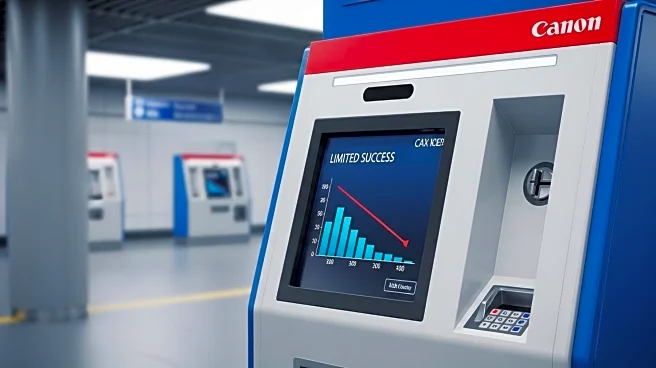What is the story about?
What's Happening?
ScotRail has concluded a year-long trial aimed at eliminating peak time rail fares, a move initially intended to encourage more commuters to switch from car travel to rail. The trial, which began in October 2023, was evaluated over nine months and showed a passenger increase of approximately 6.8%, falling short of the 10% rise needed for the scheme to be self-financing. The initiative primarily benefited existing train passengers and those with medium to higher incomes, according to Scotland's Transport Secretary Fiona Hyslop. Despite generating around four million extra rail journeys, the trial was deemed financially unsustainable and will not be extended.
Why It's Important?
The decision to end the trial highlights the challenges in shifting commuter behavior from car to rail travel, a key component in reducing carbon emissions and traffic congestion. The trial's limited success underscores the difficulty in achieving significant passenger growth without substantial financial backing. This outcome may influence future transportation policies and investments in Scotland, as well as similar initiatives in other regions aiming to promote sustainable travel options. The financial implications also stress the need for careful planning and evaluation of public transport subsidies.
What's Next?
With the trial concluded, ScotRail and the Scottish government may explore alternative strategies to boost rail travel and reduce car dependency. This could involve revisiting fare structures, enhancing service quality, or investing in marketing campaigns to attract new passengers. Stakeholders, including environmental groups and public transport advocates, may push for renewed efforts to make rail travel more appealing and accessible. The government might also consider integrating lessons learned from this trial into broader transportation and environmental policies.















